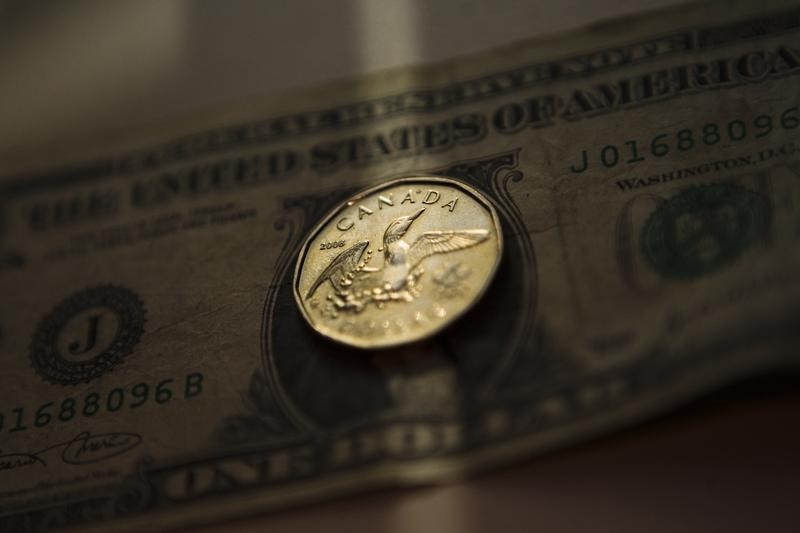* Canadian dollar at C$1.3136, or 76.13 U.S. cents
* Loonie touches a nearly one-week low at C$1.3168
* Bond prices mixed across the yield curve
TORONTO, Jan 30 (Reuters) - The Canadian dollar was little changed against its U.S. counterpart on Monday, recovering from an earlier nearly one-week low, as oil prices fell and investors weighed concerns over a travel ban implemented by U.S. President Donald Trump.
The U.S. dollar .DXY rose against a basket of major currencies as weaker-than-expected German inflation data pressured the euro and data showed U.S. consumer spending rose solidly in December. about a U.S. order banning the entry of people from seven Muslim-majority countries had weighed on the greenback earlier in the session.
Canada said it would offer temporary residency to any travelers stranded by the U.S. ban. loonie's steady profile came even as oil, one of Canada's major exports, fell. U.S. crude CLc1 prices were down 0.87 percent at $52.71 a barrel after another increase in U.S. drilling activity spread concern over rising output. O/R
At 10:02 a.m. ET (1502 GMT), the Canadian dollar CAD=D4 was trading at C$1.3136 to the greenback, or 76.13 U.S. cents, slightly stronger than Friday's close of C$1.3138, or 76.12 U.S. cents.
The currency's strongest level of the session was C$1.3116, while it touched its weakest since Jan. 24 at C$1.3168.
The loonie rose 1.3 percent last week as investor fears of a more unfavorable trade outlook for Canada abated and after Trump signed orders smoothing the path for the Keystone XL oil pipeline.
Speculators turned bullish on the Canadian dollar for the first time since September, data from the Commodity Futures Trading Commission and Reuters calculations showed on Friday. Canadian dollar positions swung to net long 2,519 contracts as of Jan. 24 from net short 5,456 contracts a week earlier. government bond prices were mixed across the yield curve, with the two-year CA2YT=RR up 0.5 Canadian cent to yield 0.803 percent and the 10-year CA10YT=RR falling 6 Canadian cents to yield 1.784 percent.
Six people were killed and eight wounded when gunmen opened fire at a Quebec City mosque during Sunday night prayers, in what Canadian Prime Minister Justin Trudeau called a "terrorist attack on Muslims." Tuesday, Canada's gross domestic product data for November is due to be released and Bank of Canada Governor Stephen Poloz will give a speech on economic modeling and monetary policy.
Earlier this month, Poloz said a rate cut remained "on the table" if the risks facing the country are realized, warning there would be "material consequences" if Trump enacts protectionist policies.
